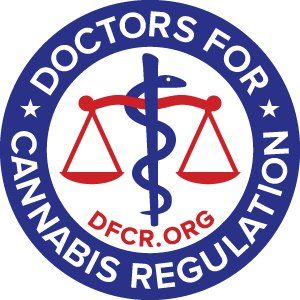Article
The Impact of Cannabis on Public Health
Author(s):
The prohibition of cannabis has become a public health issue, according to Doctors for Cannabis Regulation.

Marijuana has been a point of contention for many medical professionals, but the Doctors for Cannabis Regulation argue not only that its prohibition is detrimental to public health, but that its legalization could have a positive impact on health care, the doctor-patient relationship, and the opioid crisis.
An editorial published in the American Journal of Public Health, written by David L Nathan (pictured below), MD, DFAPA; H Wesley Clark, MD, JD, MPH; and former surgeon general Jocelyn Elders, MD, MS, has addressed the prohibition of marijuana’s effect on the public, comparing it to the prohibition of alcohol from the 1920s. As the authors put it, the prohibition of alcohol led to organized crime, increased use of stronger alcohol, and government waste - and marijuana is no different.
“We should have learned from the alcohol prohibition of the 1920s that you can’t legislate against something that otherwise law-abiding citizens are going to be doing anyway,” David L Nathan, MD, DFAPA, the president of DFCR, told MD Magazine. “The prohibition of cannabis was a bad idea from the outset, and it’s only become a tragedy in our country once the drug became much more popular among Americans in the 1960s.”
Nathan explained further that the data we currently have on the rates of tobacco, alcohol, and cannabis use have been entirely opposite. Alcohol and tobacco, which have only ever been legalized and regulated for adult use, have declined in terms of underage use in the last several decades, while underage marijuana use, which has only ever been illegal for all ages, has risen (or at least held steady) in that same timeframe.
The thought that cannabis prohibition has become a public health crisis is at the forefront of the DFCR’s outcry, according to Nathan. He described it as a 3-pronged issue, with legalization ultimately leading to more access to education, health care, and work, as well as positively affecting the doctor-patient relationship and impacting the opioid crisis.
“Given the disproportionate enforcement of cannabis legislation in the African-American community, the legalization will reduce the likelihood that a young black man or woman with have a criminal record that will limit their ability to get an education, will limit their ability to get work, will exclude them from public housing, and could prevent them from qualifying for food stamps,” Nathan said. “It is scientifically well established that poverty will restrict access to health care, and that makes the effect of the criminalization of cannabis a public health issue just in that respect.”
When it comes to the doctor-patient relationship, legalization, according to Nathan and his co-authors, will increase the likelihood that a patient will be upfront about their use of cannabis with their doctors. This, in turn, can have a positive impact on their treatment when it is relevant to their medical condition. Patients are more likely to share their use of a substance when it is legal, and even the most nominally illegal drug can cause patients to be reluctant to share what could be important medical details.
Cannabis, according to the DFCR, can have an invariably positive impact on the opioid crisis as well. In states that have legalized marijuana, the rate of deaths due to opioid overdose has decreased by 25%, and in a period where the United States averages 33000 deaths by opioid overdose per year, that number could be reduced by more than 8000 deaths if opioids were substituted by cannabis.
“There are no well-documented cases of fatal cannabis overdose,” Nathan said. “It’s now thought that 22million American adults currently use cannabis, so it’s not going away. If there’s going to be some sort of public health crisis as a result of marijuana use, we’d know about it already. “
According to Nathan, this is a pivotal time for doctors to voice their opinions on marijuana legalization. Until the founding of DFCR in 2016, there were few places for those in favor of legalization to voice their opinions. Now, however, with a board of directors, the organization provides a platform. According to Nathan, DFCR finds that the doctors who oppose the platform of regulations and position on legalization generally are undereducated on marijuana.
“They often are still in the mindset of all of us who grew up as drug warriors and felt the need to eradicate drug use regardless of the consequences,” Nathan said. “Our pitch is not that you have to like cannabis, it’s that you should hate its prohibition. Physicians who value public health should realize that the prohibition has actually worked against public health, and certainly has worked against social and racial justice.”
That “drug warrior” mindset, according to Nathan, is one of the biggest barriers prohibiting more physicians from learning about the drug. Its potential harms have been well studied, as they are the only studies the US government allows to be conducted, and they show, Nathan said, that the harms are far outweighed by the harms of alcohol, tobacco, and opioids.
“The opioid crisis, if anything, contends to make physicians more reflexively dogmatic about the need to ramp up the drug war once again,” Nathan said. “But when you see that there’s a drug like cannabis that could actually mitigate the crisis, then doctors need to rethink the bias with which they grew up about this very benign drug. The reality is that very few doctors, in their clinical experience, ever see the consequences of marijuana use, and that’s been a sharp contrast to the use of alcohol, tobacco, opioids, and other drugs that are abused.”





